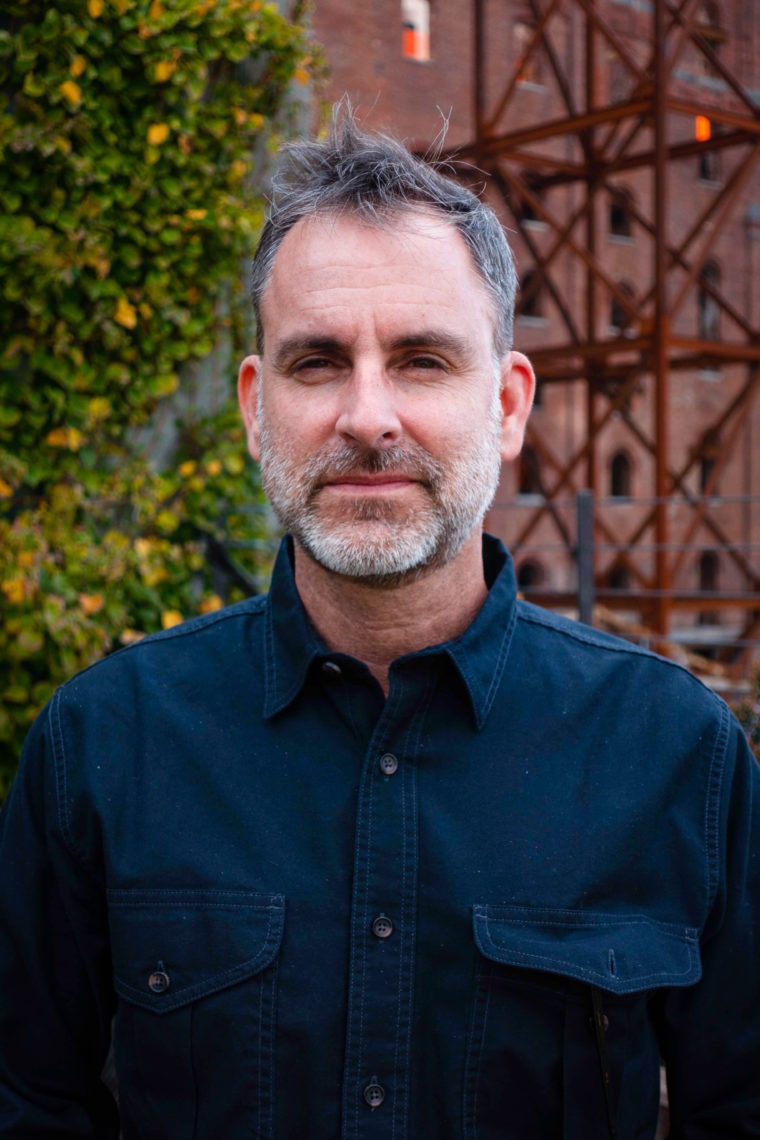Some of us arrived at UC Berkeley’s Graduate School of Journalism as well-seasoned journalists. Others came here from entirely different academic backgrounds. However, we all have one goal in common: to produce creative, impactful journalism that will make the world sit up, listen, and understand.

Michael Learmonth (’96)
This is the type of journalism that Michael Learmonth, class of 1996 and editor in chief of Vice News, advocates. He came to that decision after receiving a bachelor’s degree in politics. But there was a recession and jobs were scarce, so Learmonth took a job writing for a publication that supported a nonprofit in Washington, D.C.
“I knew what I wanted to do,” he says. “I just really didn’t know how to do it.”
So Learmonth decided to apply to graduate school for journalism.
At UC Berkeley, Learmonth was on the print track but also took classes in television and participated in the magazine program with legendary editor Clay Felker. He said Felker, along with J200 Professor Neil Henry and ethics Professor Tom Goldstein, had a big impact on him. Learmonth wrote his thesis on the threatened development of Bair Island, was part of a student magazine called “Luddite” that countered the Silicon Valley boom occurring at the time, and interned at Wired.
“It was a funny time because being at Wired at the time … the internet hadn’t really disrupted anything, so there was a lot of talk of the future but not really knowing, not really understanding, or not really feeling how it was going to change things,” he says.
Learmonth’s early days as a journalist coincided with the beginning of the tech boom in the 1990s, so he experienced firsthand how the internet disrupted media “in terms of really changing the entire architecture of it and what it produces every day,” he says.
His first job after graduating from UC Berkeley was as a features writer with the San Jose Metro (now Silicon Valley Metro) — his “most fun job, except for the one I have right now.” He then moved on to the Industry Standard during the Web 1.0 period to cover the music industry. It was here that he started covering real media disruption.
“I didn’t really know anything about the business of music,” Learmonth says, “but what that became and what that meant was covering Napster. That was a great business story over the next four, five years.”
That eventually led to new beats and new jobs, at Reuters, Variety and Business Insider. Along the way, he learned a lot about various industries and aspects of the business world, which he likened to getting an MBA.
Asked about the changes the internet spurred and where journalism is headed, Learmonth says it’s more challenging, more demanding, but with more opportunity, given all the storytelling tools available.
Vice News uses many of those tools. With a TV newscast, longform documentary series on Showtime, a website, podcasts, and a strong presence on YouTube, it seems there is nothing that Vice News hasn’t dipped into. Asked what stories Vice might pursue in 2022, Learmonth pointed to voting rights, extremism, policing, immigration, drug policy, trafficking and climate change.
“Those are all going to be incredibly important topics next year and I feel pretty good about doubling down as hard as we can on those and going for the impact stuff,” he says.
What about the growing disruption in media that threatens journalism? Learmonth is confident that Vice News can tackle this issue as well.
“A lot of the dissemination of non-facts is an economic decision and is very much like a business model that is working for someone,” he says. “So we have to figure out why that is, and we have to be the ones to call it out and to explain it. And that’s a great Vice story — when you lift the cover on something and show what the real story is and why it is the way it is.”
By Bria Manning (’23)
